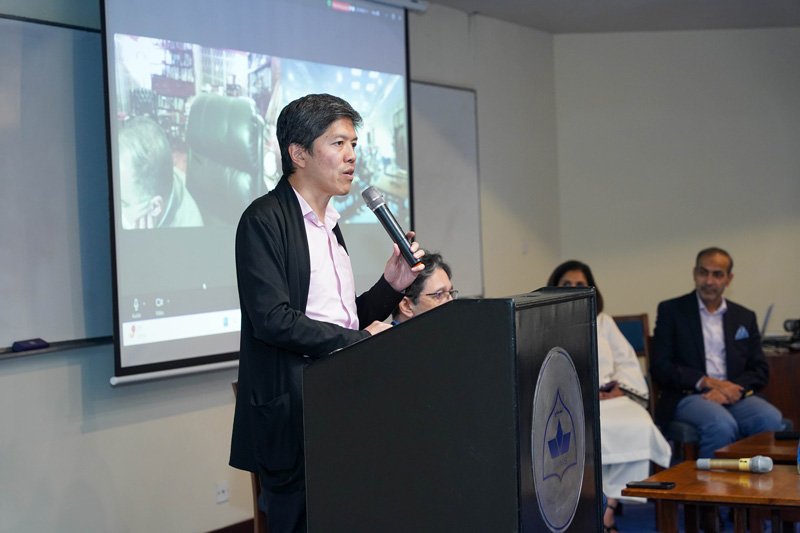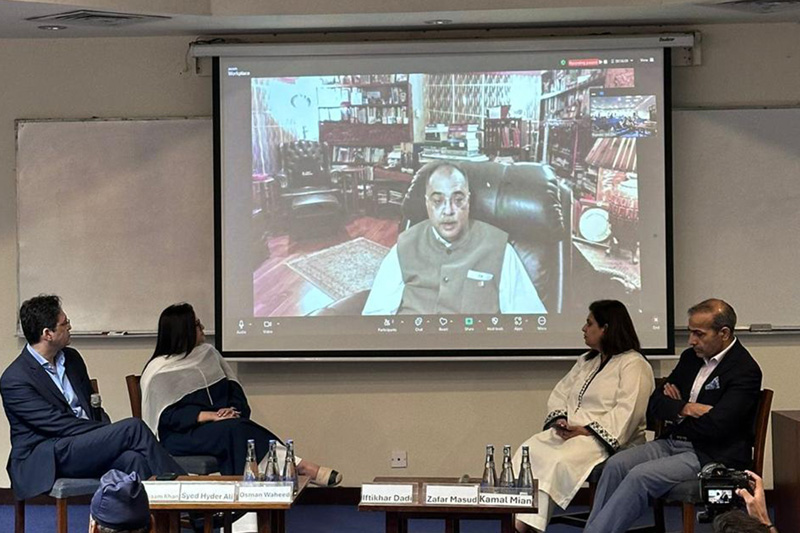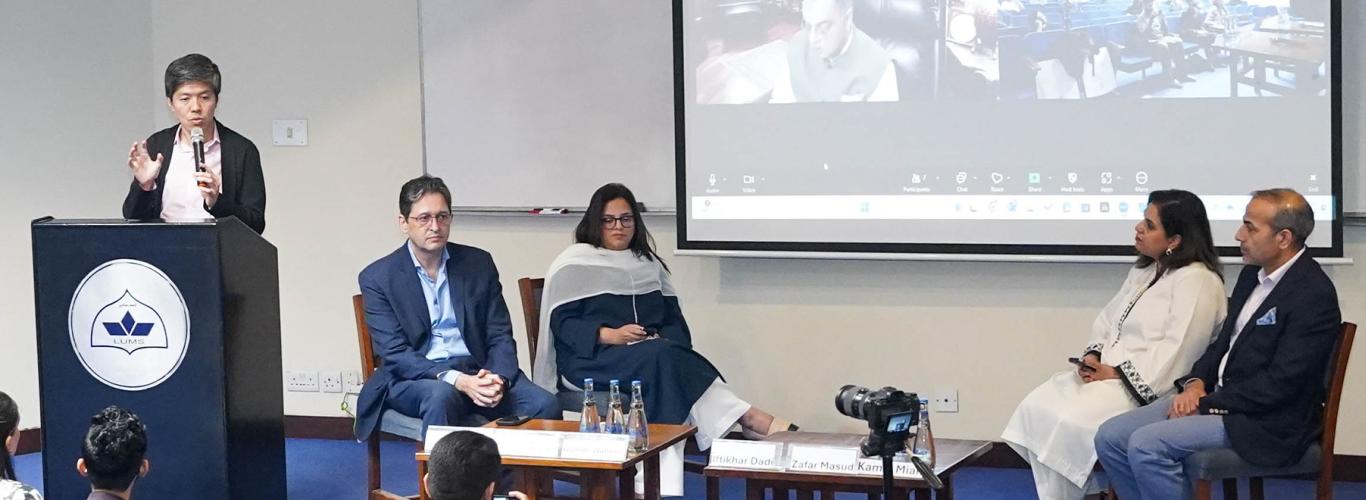LUMS Hosts Critical Dialogue on Climate Action
Amid Pakistan’s escalating climate crisis, LUMS hosted a panel discussion with industry and community leaders to explore the way forward. Titled ‘Taking the Climate Action Agenda Forward,’ the session responded to key environmental themes raised at the Lahore Biennale’s Climate Congress. During their discussion, panelists emphasised the urgency of action and highlighted the power of art and storytelling to increase engagement and awareness.
The panel, moderated by Mr. Osman Khalid Waheed, President of Ferozsons Laboratories Limited, LUMS Board Trustee, and Co-Founder of the Lahore Biennale, featured a distinguished group of speakers bringing diverse perspectives on climate and sustainability. Mr. John Tain, Curator of Lahore Biennale 03, and Dr. Iftikhar Dadi, Co-Curator, opened the discussion. Joining them were Mr. Zafar Masud, CEO of Bank of Punjab; Ms. Attiyah Inaam Khan, Head of Climate Change and Sustainability at EBM; Ms. Ayesha Aziz, Head of Sustainability at Packages Ltd.; and Mr. Kamal Mian, CEO of Fast Cables Ltd.
Mr. Waheed shared that issues like public health, climate change, and sustainability are fundamentally about changing human behaviour. He emphasised that while scientific data is crucial, it is stories that truly resonate and inspire change. “Stories are how we learn, how we connect with each other as human beings and stories are ultimately what move us to action,” he said.

In his remarks, Mr. Tain reflected on the sobering reality of Pakistan’s environmental crisis, noting that the worsening pollution levels has led to the closure of public spaces. He emphasised that while policymakers and activists can help enact change, art has a unique role in making environmental crises personal and relatable. He also highlighted that the Biennale and Climate Congress helped people see themselves in these issues, connecting with the broader impacts of pollution, global warming, and biodiversity loss.

Dr. Dadi explained the importance of a multidimensional approach. “Climate change is a complex, wicked problem, and its solutions must be just as multifaceted. Imagination and creativity are essential for finding new paths forward,” he said.

In his talk, Mr. Masud highlighted that sustainability is now essential for business, stating, “Climate compliance is no longer a luxury; it’s a necessity. We need to pursue it as part of the business, not as CSR.” He shared some of the initiatives underway at the Bank of Punjab, such as converting over 50 branches to solar power. He also stressed that effective climate action requires collective effort, “The climate agenda is so vast and varied that everyone needs to work together.”
“The age of mitigation is over,” noted Ms. Khan. “It’s all about how we adapt to the climate crisis,” she said. She also highlighted EBM’s commitment to circularity, noting that approximately 85% of their products are made from recyclable materials.
While sharing her thoughts about sustainability, Ms. Aziz pointed out that although there is a lot of conversation around tree plantation, that alone isn’t enough to solve air pollution. She encouraged businesses, particularly family-owned ones, to lead climate action by embedding environmental responsibility into their values and practices.
Mr. Mian shared his thoughts on the balance between economic growth and environmental sustainability. “How can we ensure growth without compromising sustainability?” he asked, pointing out the need for innovation to avoid the environmental missteps made by other countries. He shared that Fast Cables prioritises initiatives to reduce industrial waste. “Let’s focus on what we can do, not on what we can’t,” he urged, advocating for practical, scalable solutions that allow businesses to grow responsibly while protecting the environment.
The session concluded with the panelists expressing a hopeful outlook, noting that while the climate crisis is complex, collaborative efforts across sectors can pave the way for meaningful progress.























